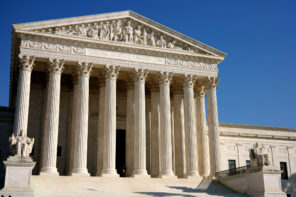I’m beginning to think we’ve made some pretty big mistakes. Let’s say learning is like building a house—a house we remodel, repaint, even tear down as we go through life. What I’m worried about is the foundation, especially the science part of the foundation, here in America. Our mistake: we ripped science from its ethical, real-life context and attempted to shape it into a collection of value-free information.
So why worry? Well, just for starters consider:
- Rachel’s quandary
- Our big health care mess
- The case of the disappearing American scientist.
Rachel, one of my students, wants to become a physician. Her core self has grown from a strong amalgam of family, church, and community values. In college, she tells me, these basic core beliefs are either ignored or outright ridiculed in nearly every learning environment she enters. Rachel’s quandary: Should she reject her core values? Reject science? Try somehow to accept both?
Multiply Rachel by a few million, add some politics and a vat of spirituality, and then listen to what Americans are yelling about in the current presidential election: sustaining the earth, homosexuality, belief in evolution, stem cells, abortion, and health care. Ethics, science, ethics, science.
Ezekiel Emanuel, the head of bioethics at the National Institutes of Health (a primary funder of health research in the world), says, “[Future physicians] need the ability to distinguish ethical issues from communications, economic issues, or aesthetic issues, to make ethical arguments, and to give ethical reasons that justify their decisions.” Seems obvious? Well, it isn’t even a required—and is only sometimes a barely explored—part of becoming a doctor or a scientist. Obviously there’s more wrong with the American health care system than only a failure to engage ethics and spirituality, but I’m thinking things might be different if ethics were an explicit focus of health care and its practitioners.
Now walk with me down the halls of my (typical) research lab facility. Who will be the next generation of scientists? To find out, look at the post-doctoral fellows, folks who’ve finished their PhDs and are the ones who actually do most of the research in today’s biomedical world. By 2002, there were 23% more foreign post-docs (nothing against foreigners, who in general do good science, are successful and often remain in the United States) than American ones working in American labs, and the number of American post-docs was decreasing overall. A related fact: typical of such international comparison tests in science knowledge, American high school seniors placed 16th out of 21 advanced nations in a recent study.
I wish I could bottle the enthusiasm I see in young kids learning science, as happened recently while organizing a Science Night at my son’s elementary school. The big hit every year is the human brains we bring in for the students to study. One night I get a call at home from a second-grader who’s so excited she can hardly talk. She manages only one sentence, “Are there really gonna be real people brains there?!?” After I figured out what she was talking about and said “yes,” she hung up. I have no idea who she was.
Let’s call her Annie. What happens to Annie’s initial thrill? Usually, we wring it out of kids by failing to take that momentum and weaving it into their lives, and these folks become the many turned off by science (usually long before college), unsure how to address their families’ beliefs in the context of the science they do learn, at a loss when they hear a presidential speech on science policy or when considering whether to have their eggs or sperm tested genetically.
But, let’s be more optimistic. Say Annie becomes an elementary school teacher, and a good one. She cares deeply for her students, wins awards, has parents fight to place their kids in her class. However, having experienced science only as a field of facts to be memorized, disconnected from her world and anything to do with her life and beliefs, Annie seldom spends time teaching it, and when she does, falls back into the same uninspired litany she experienced. And the cycle continues. How do we break in? First think about these pretty well-established, rarely-connected facts:
- Research—good old scientific research—tells us that people learn best in a rich context related to their lives.
- America is by most measures one of the most religious countries on Earth; that is, one of our most important contexts is the ethical and spiritual.
Hold on. What’s the implication? Bring spirituality, ethics, even religion into the science conversation—the classroom, the media, the internet?! God forbid.
Granted, here’s where it could get complicated for a lot of reasons: scientists, my colleagues, claim they’re not trained to discuss anything besides the facts, or afraid they’ll be labeled or targeted, ironically, by the very folk who have tried to sneak or cram creationism into science classrooms. Nervous questions ring out: Which ethics do I teach? How do I know what’s ‘right’?
Start slow and easy. First, ethics does not equal religion. Second, remember the costs of not doing this. Finally, remember Rachel; she’s not asking for us to get down on our knees and pray during Biochemistry class, but simply to start by not ignoring and ridiculing who she is. After all, education should create tensions; but it should also provide avenues through which to work out those tensions.
Take one intriguing example—developed at the University of Wisconsin for teaching evolution, the hottest of hot buttons, in high school biology. Students read and wrestle with the original work of Darwin, William Paley (a founder of Intelligent Design ideas), and Lamarck (who had different ideas about how animals evolve). The students, then, learn other ways of thinking without outright dismissing them, as well as why, in a scientific framework, Darwin’s ideas work best and the others don’t. Significant extra benefits here are students learn evolution better and develop critical thinking skills they don’t in more traditional teaching formats.
The good news: Without fail I receive inordinately positive and energetic responses from folks in the classroom (from grade school to grad school), and in civic and religious groups, when I put science in these rich contexts. People are starved for it. In thinking about rebuilding the house, think of the integration of science and ethics as the brick and mortar.




